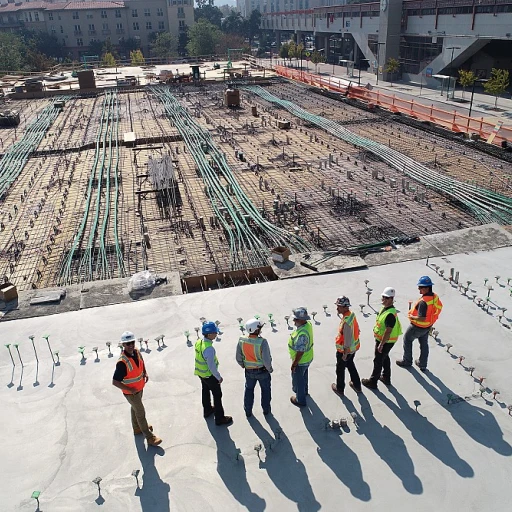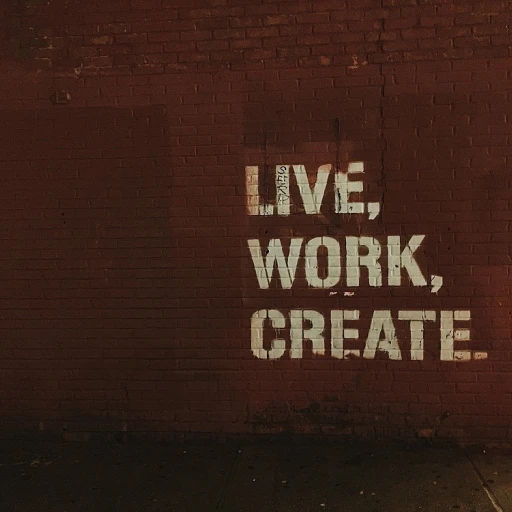Why AI is a Game Changer for Onboarding
Transforming Traditional Onboarding
When we think of traditional onboarding processes, they often conjure images of endless paperwork, manual data entry, and a cascade of repetitive tasks. HR professionals, overwhelmed by the administrative demands, find it challenging to dedicate time and energy toward fostering a welcoming environment for new hires. This is where the potential of artificial intelligence comes into play, offering a transformative approach to the onboarding experience.
The integration of AI into the onboarding process signifies a shift from routine activities to more impactful interactions. By automating labor-intensive tasks such as data entry and document verification, AI assists in reducing human error while freeing up valuable time for HR teams. This streamlining of
payroll processing and other administrative duties ensures that the onboarding process not only becomes more efficient but also aligns with the overall business objectives.
As the workforce landscape continues to evolve, businesses must adapt to remain competitive. Leveraging AI in onboarding helps organizations craft a unique and engaging experience for new employees from the very first touchpoint. It sets the stage for fostering long-term relationships, boosting morale, and ultimately enhancing productivity across the board. In subsequent parts of this article, we'll delve deeper into how AI not only streamlines administrative tasks but also crafts personalized learning paths and strengthens employee engagement.
Streamlining Administrative Tasks
Optimizing Efficiency with AI
Incorporating artificial intelligence into the employee onboarding process is a strategic move that significantly optimizes efficiency, particularly in handling administrative tasks. Traditionally, onboarding involves a multitude of repetitive and time-consuming tasks such as paperwork, data entry, and compliance checks. AI-driven solutions can automate these processes, allowing HR professionals to focus on more strategic initiatives and fostering a more engaging experience for new hires.
AI tools can swiftly process and manage documents, ensuring that all necessary forms are completed and filed accurately. This automation reduces the likelihood of human error and ensures compliance with legal and organizational standards. Moreover, AI can streamline payroll processing, a critical component of onboarding, by automating calculations and deductions, thus minimizing delays and errors. For more insights into how AI is transforming payroll management, explore AI's role in streamlining payroll processing.
By taking over these administrative tasks, AI not only saves time but also enhances the overall efficiency of the onboarding process. This allows HR teams to dedicate more time to creating a welcoming and informative experience for new employees, setting a positive tone from the very beginning of their journey with the company.
Creating Personalized Learning Paths
{"h3":"Personalized Learning Paths for Improved Onboarding\n\nEmbracing artificial intelligence in employee onboarding facilitates the creation of personalized learning paths that cater to the unique needs and skills of each employee. No two employees are the same, and tailoring the onboarding experience to each individual's strengths and weaknesses can significantly impact their integration and success within an organization.\n\nAI-driven platforms assess new hires' learning styles and preferences, adapting content to better suit their needs. This customization ensures that employees receive information in a manner that resonates with them, making the learning process more efficient and effective. Advanced algorithms can track progress and provide real-time feedback, allowing for swift adjustments to the training curriculum.\n\nBeyond enhancing knowledge acquisition, personalized learning paths also contribute to a more engaged workforce. When employees feel that their personal development is prioritized, they are more likely to be motivated and dedicated to their roles. This enhancement of employee experience aligns with AI's capabilities discussed earlier in streamlining administrative tasks, freeing up resources to focus on these tailored strategies.\n\nThe benefits of personalized learning paths have been demonstrated in various real-world applications, proving that AI is indeed revolutionizing the way organizations conduct onboarding. For HR professionals eager to learn more about AI's transformative influence, the
AIHR blog offers insights on AI's impact across various facets of human resources, from employee records management to tax preparation."}
Boosting Employee Engagement and Satisfaction
Fostering Dynamic Interactions
Artificial intelligence is not just streamlining tasks and creating learning paths in the onboarding process; it's also fostering vibrant and dynamic interactions that greatly enhance employee engagement and satisfaction. As new employees step into an organization, the initial experiences they face play a critical role in shaping their outlook towards their work environment. AI-driven onboarding tools can make these experiences seamless and engaging.
AI-powered chatbots and virtual assistants are leading the charge in this area. These tools enable new hires to have continuous and interactive communication throughout their onboarding journey. Questions that may arise during training or task assignments are quickly addressed, substantially reducing any frustration or lag in the learning process. This immediate response mechanism helps employees feel supported and valued right from the start, building a positive perception of their new workplace.
Additionally, AI can analyze employee data to identify engagement patterns and provide personalized content that resonates more effectively with each team member. For instance, if a new employee shows particular interest in certain aspects of the training or team culture, AI systems can tailor further information, thereby ensuring the content is both captivating and relevant. This tailored approach ensures that employees are not overwhelmed with generic information but are provided with information that truly matters to them.
Employee satisfaction is significantly impacted by how connected and involved they feel. AI facilitates opportunities for feedback and fosters a culture of open communication, where new hires can share their insights and experiences, making them feel heard and part of the team.
In conclusion, the integration of AI in the onboarding process is not just about efficiency; it’s about creating an engaging and satisfying experience that leads to better retention rates and overall workplace happiness. Safe to say, AI is paving the way for a more interactive and fulfilling onboarding experience.
Real-World Applications and Success Stories
Success Stories and Practical Applications in the Real World
One of the most compelling aspects of leveraging artificial intelligence in the employee onboarding process is observing the remarkable success stories and practical applications that have emerged across various industries. By integrating AI solutions, companies are experiencing substantial improvements in their onboarding efficiencies and outcomes.
Take, for example, a leading global tech company that embraced AI-driven chatbots to assist new employees during their orientation period. These chatbots are designed to provide instant answers to common questions, facilitating a smoother transition for newcomers. By using this technology, the company has not only reduced the burden on its HR team but also increased the satisfaction and engagement of its new hires.
Another inspiring success story can be found in the retail industry, where a well-known brand utilized AI to create personalized learning paths for its frontline employees. By assessing the unique needs and skills of each individual, the company was able to tailor the onboarding program to better equip its staff. This personalized approach resulted in higher retention rates and more confident employees, ready to face the challenges of their roles.
In the finance sector, an innovative bank implemented AI to streamline administrative tasks associated with compliance training for new hires. By automating these processes, the bank has minimized human error and sped up the onboarding timeline significantly. This showcases how AI not only enhances efficiency but also ensures that regulatory standards are met diligently.
These cases illustrate the transformative power of AI in reshaping the onboarding experience and ultimately, setting a strong foundation for new employee success. As AI continues to evolve, we can anticipate even more imaginative and impactful applications that could redefine the onboarding experience for both companies and employees alike.
Future of AI in Employee Onboarding
Embracing a Tech-Driven Future
As we look towards the horizon, the integration of artificial intelligence in employee onboarding is set to continue evolving and expanding its impact across sectors and geographies. Technology is not only transforming but also personalizing the onboarding journey in unprecedented ways.
In the years to come, the development of AI promises even more sophisticated solutions, enhancing the employee experience and allowing HR teams to focus on more strategic tasks. AI's ability to quickly analyze vast amounts of data will further refine personalized learning paths, mentioned in part three, by tailoring training programs that match each employee’s unique style and pace.
Moreover, with the millennial and Gen Z workforce increasingly valuing engaging and intuitive onboarding experiences, AI tools will make onboarding highly adaptable, adjusting content and interactions to meet evolving expectations and cultural shifts.
AI and The Global Workforce
As global workforces grow more diverse, AI will continue to evolve to effectively manage multilingual onboarding processes, ensuring consistency while addressing cultural nuances. Enhanced machine learning algorithms will enable AI to understand and predict outcomes, making onboarding more predictive and proactive.
Pioneering Predictive Analytics
The potential of predictive analytics to forecast employee success and retention rates will significantly advance AI's role in onboarding. AI-driven insights will enable companies to refine their hiring strategies based on historical onboarding data and predictive models.
As organizations continually adapt to new challenges, artificial intelligence will empower them to stay agile and responsive, ensuring their onboarding practices are not just reactive but also predictive and proactive. Embracing these innovations will be vital for companies aiming to maintain a competitive advantage in an increasingly digitalized world.
The future of AI in employee onboarding holds the promise of making the transition process smoother, more engaging, and optimally aligned with both organizational goals and employee expectations. As AI continues to drive operational efficiencies and enhance the employee experience, it's clear that organizations leveraging AI in their onboarding processes are setting the stage for sustained success.












